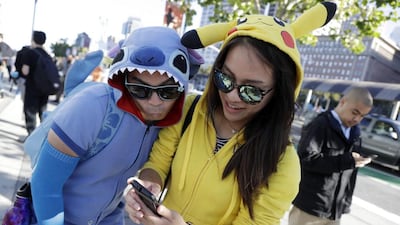By now, most of us have heard of, or joined in, the insane phenomenon of Pokemon Go, which has swept the globe over the past two weeks, gaining popularity in a way I don’t think many people expected.
Until my younger brother strolled into my room to inform me that it had been released and that I should join him and my other siblings in downloading the app as soon as possible, I didn’t even realise that there was a new Pokemon-related game.
Because I was away on holiday, I was able to spend the next few days running around town with my sister and brothers embarking on Pokemon scavenger hunts, getting excited when spotting the characters that we liked as children and allowing ourselves to be immersed in the fictional world found on our phones.
For the first time in a long time, I didn't have to lure my younger siblings out of their hotel room; they were willingly walking, if not running, around of their own volition.
All around the world, people automatically bonded over the game; they began reclaiming public spaces, parks and cultural locations.
Yes, there is still the element of being dependent on technology, which isn’t ideal, but overall it has created a positive sense of camaraderie and has made people leave the safety of their couches and Netflix to explore their cities.
Despite the misuses that unfortunately occur with every new development, I’ve found that the game has had positive consequences overall.
In the storm of articles and reactions from friends that came out in the aftermath of the game’s release, I was struck by the intense backlash against “older” people playing the game.
We were told to grow up or “get a life”, as if being a responsible adult and playing a game for fun were mutually exclusive things. While I was not personally bothered by any of this – my general take on life is “haters gonna hate” – I found it interesting to explore the idea of what being a grown-up means. I firmly believe that maintaining a sense of play and games is crucial no matter your age.
Most societies tend to dismiss play for adults. It is perceived as unproductive, petty or a shameful, guilty pleasure. The notion is that once we reach adulthood, it’s time to get serious. In addition, many of us focus so heavily on work and family commitments that we never seem to have any time for pure fun. Somewhere between childhood and adulthood, we’ve stopped playing. When we carve out some leisure time, we're more likely to zone out in front of the television or a computer screen than engage in fun, lighthearted play as we did as children.
We become unnecessarily self-conscious as adults. We are often worried that being playful will get us labelled as childish. But what is so wrong with that? Children are creative and inventive, and are constantly learning. Just the other day I caught myself yearning to be like a young boy holding a large branch fighting off an evil monster (disguising itself as an ordinary palm tree) based purely on the pleasure he was emitting as he ran off victoriously post-battle.
So much research over the years has shown that play is just as pivotal for adults as it is for children. In addition to having fun, play is a great way to fuel your imagination and creativity, and is vital for your problem-solving abilities and emotional well-being. The best part is that we don’t need to shirk all of our responsibilities to reap the benefits. As with anything, balance is key. We just need to give ourselves permission to sporadically play with the same joyful, carefree abandon of childhood.
So why not catch a few Pokemon, whether it's for the sake of nostalgia or a new experience? Have some fun, collect some fictional adorable creatures and release endorphins and stress along the way.
In the words of George Bernard Shaw: “We don’t stop playing because we grow old; we grow old because we stop playing.”
Fatima Al Shamsi is a globetrotting Emirati foodie, film buff and football fanatic

